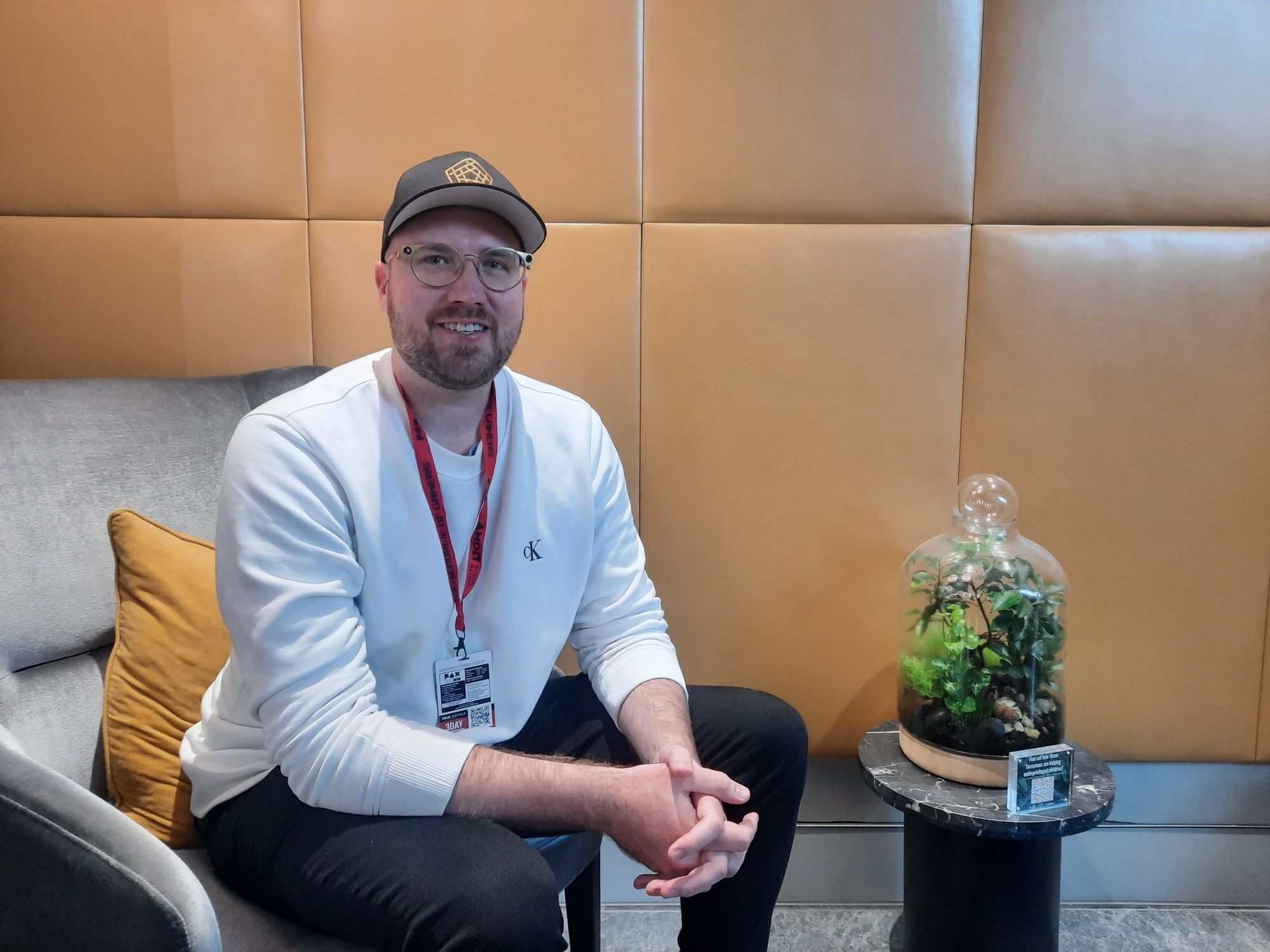PAXAUS 2022 - A Chat With the Founder of Pentanet About Cloud Gaming
Stephen Cornish shares his views on the growing gaming platform

Despite recent news of Google Stadia shutting down its servers, cloud gaming continues to spread its wings around the world. Pentanet founder and managing director Stephen Cornish believes that the platform can go even further, and his Perth-based internet service provider company is spearheading the launch of the GeForce NOW cloud gaming service in Australia. However, Stephen also believes there are lessons that can be learned from the fall of Stadia.
Join us in our little chat as he generously took the time with SUPERJUMP during the excitement of PAX Australia 2022.
SUPERJUMP: All of us have heard of the news surrounding Stadia, but I would like to know your thoughts on Stadia servers shutting down.
Stephen: There’s no doubt that cloud gaming will become the next medium in the way in which people game because it’s a much more convenient and cheaper way to access games. Obviously, a lot of large companies are starting to stake their claim; with Stadia, their approach was more towards wanting to try and build their own titles. They started all the way from the publisher level to try and create games for their platform. It fell a bit short, and Google’s not foreign to having a project go full steam and then calling it out for some reason. Google does that.
SJ: Do you think the Stadia situation represents a setback in the development of cloud gaming?
Stephen: I think it’s a setback in cloud gaming for Google. But it’s certainly not a setback [towards cloud gaming] in general.
I’d like to compare the two to streaming services. In streaming, you have Netflix and then you have the other ones that have started to come out. In cloud gaming, people will have multiple cloud gaming services, depending on which content they want, in time. But, for example, there was another streaming service second to Netflix, just because they might not exist now doesn’t mean Netflix won’t be able to exist.
So, we have all these different players who have their own take on how to succeed in cloud gaming. Nvidia has the best technology having the best resolution and refresh rate, while Microsoft is buying publishers and trying to bring more content to their platform.
Then you got Google which tried to create their own games like they wanted to make the next Fortnite. They didn’t really focus on either of the other two tiers, like technology or buying the content, [instead] they wanted to start from the grassroots. So obviously that didn’t work out for them but knowing Google they might pick it up again down the track.
SJ: What do you think can be learned from the entire Stadia situation?
Stephen: From my perspective, I think you’ve got to start with what people already have. People these days are playing their own games, and they know what they enjoy playing. For example, if they like playing League of Legends, then they are much more likely going to come to a platform that has the game on it; that gives them a level of convenience.
[It comes down to] familiarity, rather than creating something brand new and force on people, which is kind of their (Stadia’s) angle.
SJ: You’ve previously mentioned that different companies approach cloud gaming differently, but do you think there’s a single fundamental value that all cloud gaming platforms should have to be able to compete with other gaming platforms?
Stephen: I think where the key is going to come in is giving people a better experience than what they currently have.
So now we’re kind of in this influx point. Cloud gaming hasn’t really risen yet, so people still play on their PCs. People [currently] got their GTX 1080 and GTX 1080 Ti graphic cards, and they might be able to afford the RTX 30-series graphic cards. I think the step change will come when people want to start playing in a 4k high refresh rate setup, and all of a sudden, they’re staring down the barrel of $4,000 - $5,000 gaming PCs. Rather than doing that, they might be able to pay a small and palatable subscription fee per month and instantly start playing that game.
You only need to look at the companies manufacturing the cards. So at the moment making a GPU is a complicated process and it’s very wasteful. The idea of having a card, manufacturing it, and selling it to a consumer to have it sit idle at someone’s home, that’s very wasteful process. For Nvidia, they have 200 million people with an Nvidia GPU at home, but they predicted that cloud gaming will allow up to 1 billion people accessing their product. When you hear about GPU shortages and whatnot, it’s because they’re moving into cloud. This is the way that the industry is trying to move into.
Not only do you get the processing power, but you don’t need to download because all the titles are sitting there in the cloud ready to go. Uploads and updates become a thing of the past so really what it does is super convenient.
SJ: How long do you think, in years, will it take until cloud gaming can be considered as a popular option among all the other gaming platforms?
Stephen: In terms of years, I’m thinking of over the next year, in terms of cloud gaming becoming an option.
What I think the big change would be is when people can play better than the 1080p resolution. So when they can suddenly access 2k and 4k high refresh rate, once that is launched, that’s when I think you see the big changes because that’s the kind of game people want to access but not everyone can access it because it requires a very expensive gaming setup.
Over the next 12 months, I think cloud gaming is going to get a lot more attractive. We have about 1,000 people signing up every day, but over the last year, we got 250,000 people signing up for GeForce NOW. So, I think people are starting to explore it and starting to hear about it. While 12 months will be a very short timeframe, but with the accessibility and the things that create the changes, it’s just right around the corner. And that’s what we’re trying to do to power that.
In terms of the time frame where everyone’s on cloud gaming, I think it’s still several years away. But the ability to play cloud gaming and have a good experience is not only here and now, but it also gets better right around the corner.
SJ: What do you have to say about the future of cloud gaming?
Stephen: I think there’ll be a time, and it might be in another generation where it’s the same as the floppy drive. There will come a time when it’ll be archaic technology. Like the desktops, for instance, there’ll come a time we’ll look back with our kids and say, “Look at this computer I got.”
And the kid will be like “What are you on about, I thought the computer lives in the internet.”
“No no no, we used to have this thing next to us, this big machine.”
So I think that’s what a very easy future for me to imagine. If you look forward a bit, it’s just a matter of how long until it gets there, and I think it won’t actually be that long.
We'd like to offer our sincere thanks to Stephen for the interview, and we can't wait to see what Pentanet will have going on down the line!
